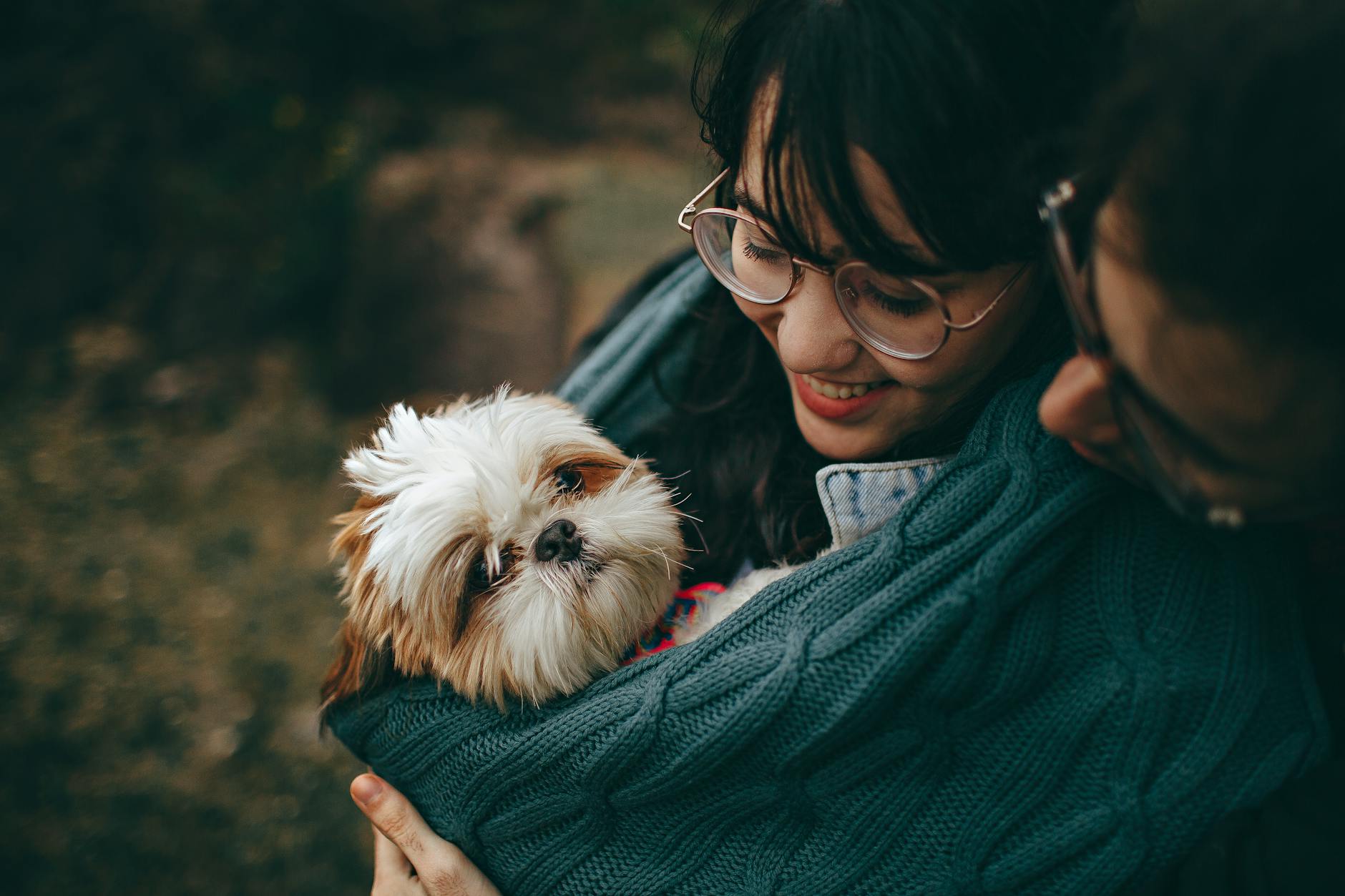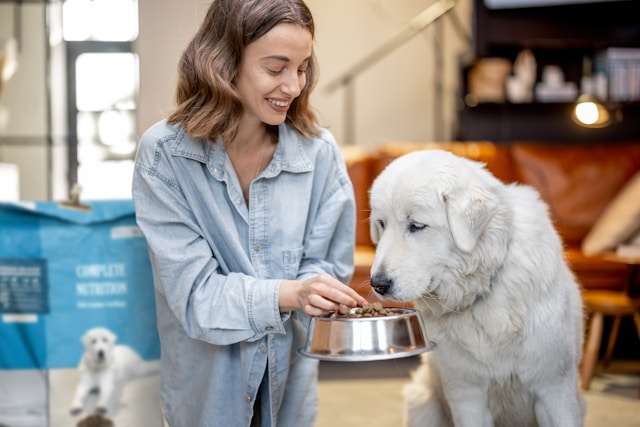What It Means to Be a True Dog Person in 2024

Being a dog person goes beyond simply owning a dog. It means embracing a unique connection filled with loyalty, unconditional love, and companionship. Dog people understand the joy of forging a relationship that’s as fulfilling for them as it is for their furry friend.
Whether searching for the perfect breed to match your lifestyle or navigating what it truly takes to care for your pup, understanding this bond is key to enhancing your experience. If you’re curious about which dog breed might suit you best, explore our Dog Breed Guide to help you make the right choice.
Table of Contents
Understanding the Term ‘Dog Person’
When discussing being a “dog person,” we’re not just debating someone who owns a dog. It’s a lifestyle, a mindset, and sometimes even a personality trait. For dog lovers, the bond with their furry companions goes beyond simple companionship. It’s a relationship filled with loyalty, affection, and mutual understanding—a unique connection that shapes how they live, interact, and connect with others.
The Emotional Bond
The emotional connection between dog people and their pets is profound. Dogs aren’t simply animals; they’re family. Their wagging tails, warm cuddles, and constant presence provide unmatched comfort. Dog people often describe their pets as a source of unconditional love. Have a rough day? A dog’s joyful greeting can make it all better as if they can sense your emotions like a close friend.
For many, dogs are more than just pets; they’re therapists, workout buddies, and loyal confidants all rolled into one. Thousands of studies, including behavioral research, suggest that people with close bonds to their dogs experience reduced stress and better mental health. Are you curious about how your dog perceives your emotions? Learn more about canine behavior.

Photo by Helena Lopes.
Lifestyle Choices
Being a dog person influences more than just your home life. It’s a lifestyle. From planning vacations around pet-friendly destinations to making time for daily walks, dogs reshape routines. Often, their needs become a priority. You might wake up earlier for morning walks or spend weekends at the local dog park instead of lounging indoors.
Some dog lovers even take up new hobbies thanks to their pets. Activities such as hiking, dog training, or agility sports connect dog owners with the outdoors while maintaining their pet’s physical health. Not sure what activities might be perfect for your dog? Check out our Best Dry Dog Food guide to learn how nutrition fuels an active canine lifestyle.
Community and Socialization
Being a dog person also opens doors to a vibrant sense of community. From dog-friendly meetups and obedience classes to charity runs and dog expos, there’s no shortage of opportunities to connect with like-minded individuals. You may even find long-lasting friendships through these activities.
Socialization also extends to the dogs themselves, as regular visits to the dog park can help your pet develop good behaviors while strengthening your bond. Need tips on fostering strong dog-human connections? Explore more about dog-person personalities and activities.
Dog people often transform their pets into bridges for social interaction, helping introverts open up or providing outgoing extroverts with another way to thrive in social situations. The phrase, “dogs bring people together,” couldn’t be more accurate.
In the next sections, we’ll continue exploring what makes dog lovers unique and how this lifestyle enriches lives one wag at a time!
Benefits of Being a Dog Person
Being a dog person isn’t just about sharing your home with a pet. The companionship they provide brings profound benefits that positively impact various aspects of your life. From health perks to opportunities for social growth, being a dog person is often life-enhancing in ways you might not expect. Let’s dive into some ways dogs enrich our lives.
Physical Health Benefits

Photo by Blue Bird.
Owning a dog is like having a built-in personal trainer. Daily walks, energetic play sessions, and basic training routines keep you active. Studies show that dog owners are more likely to meet their daily exercise requirements than non-dog owners. A simple 30-minute walk with your dog can boost your cardiovascular health, burn calories, and lower your blood pressure.
It’s not just exercise. Dogs have been shown to reduce stress by increasing serotonin and dopamine levels—much-needed hormones for feeling calm and at peace. Research even links dog ownership with a lower risk of heart disease, thanks partly to their calming presence in a home. Curious how to keep your four-legged running buddy healthy? Check out our Nutrition Tips for Dogs.
For more insights into canine health benefits, you can explore Harvard’s guide on the health benefits of dogs.
Mental Health and Companionship
Dogs are fantastic companions, especially during difficult times. Their unconditional love is unmatched, and their presence helps ease feelings of anxiety, stress, and depression. Coming home to an excited wagging tail can turn even the worst days.
Interaction with dogs promotes the release of oxytocin—the “love hormone”—which fosters a sense of emotional well-being. No wonder therapy dogs are often used in hospitals, schools, and care homes to comfort people. Dogs intuitively sense when something’s wrong, offering their silent yet powerful support.
If you want information on how dogs boost mental health, visit UC Davis Health’s article.
Social Connections
Dogs are natural social bridges—they bring people together in unexpected ways. Whether you’re visiting a dog park or attending a pet-friendly event, it’s easier to meet and connect with others when a dog is involved. They’re excellent icebreakers, sparking conversations with strangers and building lasting friendships.
Beyond casual meetings, dog owners often become part of a larger community through meetups, training groups, or charity events. Many find that owning a dog helps break feelings of isolation and loneliness. If you’re shy, don’t worry—a dog can do the talking for you (or at least start it).
For more community-focused activities, check out our Dog Breeds Guide for Different Lifestyles, and find the furry pal most suited to your social habits.
Owning a dog makes socialization fun, natural, and rewarding. Why not let your dog lead the way toward building a bigger and better network of friends? For additional resources, read about the science-based benefits of dogs and social interaction.
The Responsibilities of a Dog Person
Being a dog person means more than cuddles and companionship. It comes with real responsibilities that demand time, attention, and dedication. Every wagging tail counts on its owner to meet basic needs, provide care, and build a happy life.
Daily Care and Training
Caring for a dog begins with consistency. Your furry friend needs food, fresh water, exercise, and interaction every day. This doesn’t just keep them alive—it ensures they’re thriving.
- Meals and Nutrition: Dogs depend on you for proper meals. Ensure you provide quality dog food that matches their age, size, and breed. For feeding tips, visit the Best Dry Dog Food Guide.
- Hygiene: Regular grooming and clean-up are essential. This includes brushing fur, cleaning ears, and maintaining dental hygiene.
- Training: Training isn’t a one-time task. Basic commands like “sit,” “stay,” or leash etiquette should be maintained daily. Positive reinforcement works wonders and keeps behaviors consistent.
- Mental Stimulation: Don’t forget toys and activities that challenge their brain! Puzzle feeders or new tricks can give your dog something fun to focus on.

Photo by Ray Bilcliff.
Routine care creates a healthy, balanced environment where dogs feel loved and secure.
Financial Considerations
Owning a dog comes with financial responsibilities. When you bring a pup home, expenses can add up quickly. It’s not just the adoption or purchase fee—there are ongoing costs to consider:
- Food and Treats: High-quality dog food isn’t cheap but essential for your pet’s health.
- Veterinary Care: From rabies shots to routine check-ups and emergencies, vet bills are unavoidable. Consider investing in pet insurance for added security. This AVMA guide dives into long-term pet-care planning.
- Grooming Services: Professional grooming may be necessary every few weeks, depending on your dog’s breed.
- Accessories: Collars, leashes, beds, and toys aren’t luxuries—they’re necessities.
- Miscellaneous Costs: Unexpected expenses like repairs (hello, chewed furniture!) or additional obedience classes can surprise you.
Financial readiness is crucial when taking on the responsibility of a dog. A well-planned budget can ensure you’re prepared for anything.
Time Commitment
Dogs don’t just need food and occasional belly rubs—they crave your time. Owning a dog is like committing to a daily schedule designed around their needs.
- Exercise: Most dogs need at least 30 minutes to 2 hours of exercise, depending on their energy level. Whether it’s a walk around the block or a rigorous hike, this time helps them stay fit and happy.
- Playtime: Dogs are social animals. A game of fetch or tug-of-war offers physical and emotional stimulation.
- Socialization: Taking your dog to parks or arranging playdates helps them learn proper dog-to-dog (and people) behaviors. If you’re curious about how different breeds manage these activities, visit Dog Breeds for Every Lifestyle.
- Training Maintenance: Incorporating even 10 minutes of daily training refreshers reinforces good habits.
Balancing work, family, and dog care can be challenging. But, the joy of a wagging tail after a busy day often makes it worthwhile. Want more advice on being a responsible dog owner? Check out the American Kennel Club’s tips.
Taking responsibility as a dog person means understanding that your pet depends on you for everything—every single day. Each moment spent builds a bond that lasts a lifetime.
Choosing the Right Dog for You
Selecting the right dog is more than picking a cute pup. It’s about finding a companion that complements your lifestyle and personality. A thoughtful choice ensures you and your dog are happy for years.
Understanding Dog Breeds

Photo by Megan (Markham) Bucknall.
Knowing your future dog’s breed characteristics is essential. Some breeds are social butterflies, while others are more reserved. Consider factors like size, grooming needs, health issues, and temperament. For example, a Golden Retriever is perfect for an active family, while a French Bulldog thrives in an apartment with less physical activity.
Additionally, some breeds are more suited for specific climates. With its thick coat, a Siberian Husky feels more at home in colder environments. Meanwhile, short-haired breeds like Whippets prefer warmer conditions.
Explore our detailed Dog Breed Guide for a closer look at various breeds and what makes each unique. For a deeper dive, check out How to Choose a Dog Breed Based on Your Lifestyle.
Matching Energy Levels
This is a big one! A dog’s energy level must match your daily routine. Imagine bringing home a high-energy Border Collie when you’re more of a Netflix-on-the-couch type—it’s a recipe for disaster. Active dogs require mental and physical stimulation, often needing several hours of play daily.
Here’s how to assess compatibility:
- Active Lifestyle: Opt for breeds like Australian Shepherds or Labrador Retrievers if you enjoy jogging or hiking.
- Laid-back Lifestyle: Breeds like Basset Hounds or Bulldogs are lavish for quieter homes.
- Balanced Energy: If you want a mix, breeds like Doodles or medium-sized dogs are often moderate in their activity needs.
Evaluate your living situation, too. Space constraints can limit exercise options, especially for larger or hyperactive dogs. Are you curious to find exact matches for your lifestyle? Use this Breed Selector Tool for personalized options, or check out this handy guide on Choosing the Right Breed for Your Lifestyle.
Final Thoughts (not included here but hinted at for the following sections)
Understanding breeds and their energy levels will simplify searching for the perfect furry friend. Ready to explore further? Stay tuned for tips on training and care in the following sections!
FAQ
Do you have questions about being a dog person? You’re not alone. Here, we address some of the most common concerns and curiosities about owning and loving dogs. Whether you’re a seasoned canine companion or just curious, these FAQs tackle various topics to guide and inform you.
What’s the Difference Between a Dog Person and a Dog Lover?
A dog person lives a life shaped by their bond with dogs. Being a dog lover means enjoying dogs, but it doesn’t always equate to the same lifestyle commitment. Dog people typically prioritize their dog’s needs as part of their routine—they plan road trips with dogs in tow or set aside time for daily walks and adventures. Interested in learning more? You can read Are You a Dog Lover or Dog Person?
How Do I Know If I’m a Dog Person?
I’m not sure if you’re a genuine dog person. Here are some tell-tale signs:
- You never leave the house without greeting your pup first.
- You genuinely enjoy cleaning up fur. Okay, maybe you can tolerate it.
- Your phone’s photo album? At least 90% dog pics.
Being a dog person extends beyond affection—it’s about incorporating your furry friend into your life as a family member. If you’re curious to explore this topic further, check out this discussion on determining if you’re a dog person.
What Breeds Suit Dog People Who Want Active Companions?
Active dog people often gravitate toward breeds that can match their lifestyle. Certain breeds, like Golden Retrievers, Australian Shepherds, and Border Collies, thrive on exercise and outdoor adventures. Looking into the specific traits of these breeds can help you decide which fits your life best. For more details on breeds and their characteristics, visit our Ultimate Guide to Labrador Retriever Care.
Do All Dog People Own Dogs?
Surprisingly, not all dog people own dogs! Many individuals who identify as dog people volunteer at shelters, foster dogs or enjoy spending time with friends’ pets instead. The key lies in their appreciation and connection toward these animals, even if they can’t currently have one.
Can Dogs Sense If You’re a Dog Person?
Absolutely! Dogs are perceptive and often gravitate toward kind, calm, and dog-friendly individuals. If you’re giving off positive energy and showing enthusiasm, you might find dogs approaching you more often than non-dog people.
For a deeper dive into understanding canine behavior and connections between humans and dogs, check out our article on dog-human interactions.
What Challenges Do Dog People Face?
Dog people may face unique challenges, such as:
- Balancing time commitments for training, exercise, and care.
- Handling unexpected messes like chewed furniture or muddy paws.
- Financial costs, including vet bills, food, and accessories.
Despite these, most dog people would argue that every challenge is worth it—after all, what’s a little chaos when the reward is unconditional love? For tips on managing these responsibilities, visit The Ultimate Guide to Poodles.
Have More Questions?
If you’re still curious about what it means to be a dog person, or you’re diving into the specific needs of breeds, check out more detailed insights in our article on Newfoundland Dog Personality Traits. There’s always more to learn about living your best life alongside dogs.
Summarizing the Joys and Responsibilities of Being a Dog Person
Being a dog person is both deeply rewarding and a significant commitment. It’s a lifestyle filled with love, laughter, and loyalty—but it also comes with responsibilities you can’t ignore. Let’s break it down into the joys and duties of this beautiful bond.
The Joys of Being a Dog Person
Owning a dog can bring happiness that’s hard to put into words. Here are just a few examples of how dogs brighten our lives:
- Unconditional Love: Dogs offer pure, unwavering love. They’re always thrilled to see you no matter your day’s challenge.
- Companionship: Whether out exploring or relaxing at home, your dog is right by your side. To explore how dogs improve their quality of life, check out The Joy and Responsibility of Dog Ownership.
- Boosting Mental Well-being: Spending time with a dog reduces stress and promotes happiness. It’s like having a personal cheerleader at home.

Photo by Yan Krukau.
The Responsibilities of Being a Dog Person
Having a dog isn’t all belly rubs and tail wags—it’s a real commitment. Here’s what it entails:
- Time: Dogs need daily attention, from walks and play to training and care.
- Financial Costs: The expenses add up from food and toys to vet bills. This isn’t a hobby but a lifestyle choice requiring planning.
- Emotional Investment: They rely on you as much as you lean on them. You’re their whole world.
For more insights into the balance of joy and duty as a dog owner, dive into this Petlife article on responsibilities and joys.
By caring for your dog with love and dedication, you’ll find that the rewards outweigh the challenges every single time. Being a dog person means embracing this beautiful journey of companionship and care.







One Comment